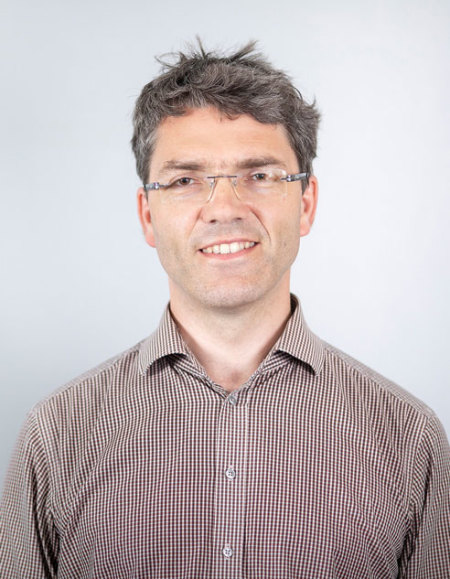Learning from the World: Housing Policy Conversations with International Experts
As part of the UCLA course Public Affairs 149 International Housing Policy, professor Paavo Monkkonen interviewed a number of international experts on how different housing policies are implemented in their country. In a period of time when Southern California is looking for new ideas to address its housing crises, these international experiences can serve as inspiration and lessons learned for policy advocates and elected officials. For each housing policy area, a pair of countries is included to contrast and compare experiences. For example, public housing in Hong Kong and France, rent control in Germany and India, and social housing in the Netherlands and Sweden. This video archive will be updated over time, as more interviews are conducted and in future iterations of the course. We hope it can be helpful to all!
UCLA Housing Voice Podcast Episode 16: Japanese Housing Policy with Jiro Yoshida

JIRO YOSHIDA is Associate Professor of Business (with tenure) at the Pennsylvania State University and Guest Associate Professor of Economics at the University of Tokyo.
UCLA Housing Voice Podcast Episode 19: Community Finance and Slum Upgrading in Bangkok with Hayden Shelby

HAYDEN SHELBY is an assistant professor in the School of Planning in the College of Architecture, Art, and Planning at the University of Cincinnati.
UCLA Housing Voice Podcast Episode 20: Social Housing in France with Magda Maaoui

MAGDA MAAOUI is an adjunct professor at the University of Cergy-Paris and a recent graduation of Columbia University with a PhD in urban planning. Her expertise is in housing policy, real estate development, community planning and spatial justice.
Hong Kong Public Housing: In Conversation with Yip Ngai-Ming

YIP NGAI-MING is professor of housing and urban studies in the department as well as member of the Chartered Institute of Housing, honorary fellow of Hong Kong Institute of Housing, registered social worker, and registered professional housing manager. He is also serving as member of the Task Force on Tenancy Control of subdivided units of the Hong Kong Government and member of the commercial properties committee of the Hong Kong Housing Authority. His current research work is focused on urban policy, housing policy and housing management. He has been editor of Housing Studies since 2015.
Featured Articles
Forrest, Ray, and Ngai Ming Yip. 2014. “The Future for Reluctant Intervention: The Prospects for Hong Kong’s Public Rental Sector.” Housing Studies. Taylor & Francis. https://doi.org/10.1080/02673037.2013.878020.
Yip, Ngai Ming, Adrienne La Grange, and Ray Forrest. 2009. “Making Space: Residential Trajectories in Hong Kong.” Urban Geography 30 (7): 756–78. https://doi.org/10.2747/0272-3638.30.7.756.
Yip, Ngai Ming, Ray Forrest, and Adrienne La Grange. 2007. “Cohort Trajectories in Hong Kong’s Housing System: 1981-2001.” Housing Studies 22 (1): 121–36. https://doi.org/10.1080/02673030601024655.
Social Housing Associations in Sweden: In Conversation with Ida Borg

IDA BORG is a post-doctoral researcher, with research interests concerning how housing tenure types are distributed across space and time and the implications this has for how and where people live. In particular, she is interested in how the welfare state responds to inequalities generated on the housing market across countries, but also within countries. She usually works with a quantitative research strategy, using either rich administrative data covering the total population or she makes use of European comparable cross country surveys.
Her dissertation is entitled “Housing, poverty and welfare state: Spatial distribution of tenure types and its effects on housing deprivation, unemployment and residualisation” which was defended on October 12, 2018.
At the department of Human Geography, she works on the research profile Population Geography, Migration and GIS. She is also a part of the Swedish Initiative for Research on Microdata in the Social and Medical Sciences (SIMSAM) and the Stockholm University SIMSAM node for Demographic Research (SUNDEM) held at Stockholm University Demography Unit (SUDA). She is also affiliated of the SPaDE collaboration working on Social Policy and Family Dynamics in Europe. She graduated from The Swedish Interdisciplinary Graduate School in register-based research (SINGS) in December 2016.
Featured Articles
Borg, Ida. 2015. “Housing Deprivation in Europe: On the Role of Rental Tenure Types.” Housing, Theory and Society 32 (1): 73–93. https://doi.org/10.1080/14036096.2014.969443.
Borg, Ida. 2019. “Universalism Lost? The Magnitude and Spatial Pattern of Residualisation in the Public Housing Sector in Sweden 1993–2012.” Journal of Housing and the Built Environment 34 (2): 405–24. https://doi.org/10.1007/s10901-018-09638-8.
Social Housing Associations in Holland: In Conversation with Marja Elsinga

MARJA ELSINGA is leading the chair of Housing Institutions & Governance, which is focusing on arrangements for housing that contribute to wellbeing of people in the Global North as well as the Global South. Adequate housing is about proper planning and design, energy efficient materials, processes and installations. To make adequate housing work; institutions and governance are of key importance.
Her team focusses on how to make adequate housing work in different contexts and how countries can learn from each other. “I am supervising PhD-students from Europe, Asia, Africa and Latin America. Working with PhD-students is one of my favorite activities. These young people are full of new ideas and energy to find solutions for housing problems in their own country. I feel inspired by them.”
The world is urbanizing rapidly and this has huge consequences for housing: wellbeing of people is under pressure. Rising house prices are an important source of income for owners of residential real estate, for local governments by tax revenues and engine of growth for national economies. Moreover, speculating on even higher house prices, using the housing stock for Airbnb and neglecting maintenance are ways to achieve even higher profits. Yet, housing is closely related to the wellbeing of people: adequate housing is of key importance for health, basic security and access to the labor markets in the Global North as well as the Global South. The current housing situation demonstrates an uncomfortable tension between housing as source of income for many and adequate housing as human right. With several initiatives the chair wants to respond to these societal issues.
She is teacher on housing issues in bachelor and master education in TU Delft and is invited by many universities for guest lectures on the topic of housing. She has more than 25 years of experience in contract research for the European Commission, Dutch central and local governments, the Flemish Expertise Centre for Housing, housing associations and lenders. She also holds several positions in housing practice such as the board of the Network Conceptual Building and the expert council for assessment of Dutch housing associations. Moreover, she is regularly invited as (keynote) speaker at housing events across the world.
Featured Articles
Elsinga, Marja, and Joris Hoekstra. 2005. “Homeownership and Housing Satisfaction.” Journal of Housing and the Built Environment 20 (4): 401–24. https://doi.org/10.1007/s10901-005-9023-4.
Elsinga, Marja, and Hans Lind. 2013. “The Effect of EU-Legislation on Rental Systems in Sweden and the Netherlands.” Housing Studies. Taylor & Francis. https://doi.org/10.1080/02673037.2013.803044.
Haffner, Marietta, Marja Elsinga, and Joris Hoekstra. 2008. “Rent Regulation: The Balance between Private Landlords and Tenants in Six European Countries.” European Journal of Housing Policy 8 (2): 217–33. https://doi.org/10.1080/14616710802037466.
India Rent Control: In Conversation with Sahil Gandhi
 SAHIL GANDHI is currently a Fellow at the Center for Social and Economic Progress in New Delhi, India. His research interests are in the areas of urbanization, land and housing markets in India. His research has been published as chapters in edited books, and as academic articles in Cities, Environment and Urbanization, Public Finance and Management, and several others. His work has been cited in the Financial Times, The Straits Times and several Indian dailies. Sahil was an assistant professor at the Tata Institute of Social Sciences, Mumbai and a postdoctoral scholar at the University of Southern California. He has a Ph.D. in economics from the University of Mumbai.
SAHIL GANDHI is currently a Fellow at the Center for Social and Economic Progress in New Delhi, India. His research interests are in the areas of urbanization, land and housing markets in India. His research has been published as chapters in edited books, and as academic articles in Cities, Environment and Urbanization, Public Finance and Management, and several others. His work has been cited in the Financial Times, The Straits Times and several Indian dailies. Sahil was an assistant professor at the Tata Institute of Social Sciences, Mumbai and a postdoctoral scholar at the University of Southern California. He has a Ph.D. in economics from the University of Mumbai.
Featured Articles
Gandhi, Sahil, Vaidehi Tandel, Alexander Tabarrok, and Shamika Ravi. 2020. “Too Slow for the Urban March : Litigations and Real Estate Market in Mumbai, India.” https://www.brookings.edu/wp-content/uploads/2019/01/Litigations-and-Real-Estate-Market-in-Mumbai-India-1.pdf
Tandel, Vaidehi, Shirish Patel, Sahil Gandhi, Abhay Pethe, and Kabir Agarwal. 2016. “Decline of Rental Housing in India: The Case of Mumbai.” Environment and Urbanization 28 (1): 259–74. https://doi.org/10.1177/0956247815620316.
Germany Rent Control: In Conversation with Konstantin Kholodilin

KONSTANTIN A. KHOLODILIN was born in 1973 in Saint-Petersburg (Russia). He had graduated from the Saint-Petersburg State University in 1995. In 2003, he obtained his doctor title from the Universitat Autònoma de Barcelona (Spain) and in 2012 a title of Doctor habilitatus from the Europa-Universität Viadrina (Germany). From 2001 till 2004, he was a researcher at the Université Catholique de Louvain (Belgium), where he was developing a model to predict the business cycle turning points in Belgium. Since 2005, he is a senior researcher at the DIW Berlin (Germany). He specializes mainly in the following fields: real-estate economy, spatial econometrics, and time series analysis of the business cycles.
Featured Articles
Kholodilin, Konstantin A. 2017. “Quantifying a Century of State Intervention in Rental Housing in Germany.” Urban Research and Practice 10 (3): 267–328. https://doi.org/10.1080/17535069.2016.1212251.
Kholodilin, Konstantin. 2020. “Long-Term, Multicountry Perspective on Rental Market Regulations.” Housing Policy Debate 30 (6): 994–1015. https://doi.org/10.1080/10511482.2020.1789889.
Mense, Andreas; Michelsen, Claus; Kholodilin, Konstantin. 2018. “Empirics on the Causal Effects of Rent Control in Germany.” In Vereins Für Socialpolitik. (Conference Paper) https://www.econstor.eu/bitstream/10419/181625/1/VfS-2018-pid-13983.pdf
Mexico Homeownership: In Conversation with Alejandra Reyes

ALEJANDRA REYES‘ research analyzes multifaceted matters – most notably the relationships between governance, housing production, and issues of access – and highlights the critical influence of political and economic factors on urban development.
Previously, she was the 2018-2019 Postdoctoral Fellow at the Institute on Municipal Finance and Governance at University of Toronto’s Munk School of Global Affairs and Public Policy. She received her B.A. in Architecture at the University of California Berkeley and an M.S. and Ph.D. in Community and Regional Planning at the University of Texas at Austin.
Featured Articles
Reyes, Alejandra. 2021. “Mexico’s Housing Crisis: Vacancy, Limited Access & Deaf Policy Responses.” International Journal of Urban Sciences 25 (S1): 167–94. https://doi.org/10.1080/12265934.2020.1776145.
Reyes, Alejandra. 2020. “Mexico’s Housing Paradox: Tensions Between Financialization and Access.” Housing Policy Debate 30 (4): 486–511. https://doi.org/10.1080/10511482.2019.1709879.
South Africa Self Help Housing: In Conversation with Dr. Sarah Charlton

SARAH CHARLTON is an associate professor who directed the Centre for Urbanism and Built Environment Studies (CUBES) from July 2013 to December 2014 and is Associate Director of CUBES in 2019. She has been teaching in the School of Architecture & Planning at Wits since 2003, and prior to that worked for the eThekwini municipality and for the housing and development-oriented non profit organization Built Environment Support Group (BESG). Her academic research explores the ways in which poor people make use of the city, with a particular interest in the geographies of ‘home’ and “work.’ She has a long-standing interest and involvement in housing, and her doctorate focused on the South African government’s ‘RDP’ housing program. Current research interests include everyday lives in the city and the interface between development initiatives and peoples’ responses to them.
Featured Articles
Charlton, Sarah. 2009. “Housing for the Nation, the City and the Household: Competing Rationalities as a Constraint to Reform?” Development Southern Africa 26 (2): 301–15. https://doi.org/10.1080/03768350902899637.
Charlton, Sarah, and Caroline Kihato. 2006. “Reaching the Poor? An Analysis of the Influences on the Evolution of South Africa’s Housing Programme.” In Democracy and Delivery: Urban Policy in South Africa, edited by Udesh Pillay, Richard Tomlinson, and Jacques du Toit, 252–301. Cape Town, South Africa: HSRC Press.
Shapurjee, Yasmin, and Sarah Charlton. 2013. “Transforming South Africa’s Low-Income Housing Projects through Backyard Dwellings: Intersections with Households and the State in Alexandra, Johannesburg.” Journal of Housing and the Built Environment 28 (4): 653–66. https://doi.org/10.1007/s10901-013-9350-9.
Brazil Urban Upgrading: In Conversation with Camila Saraiva

DR. CAMILA SARAIVA is a Postdoctoral Fellow at the Federal University of ABC (UFABC) Laboratory for Urban and Regional Studies and Projects (LEPUR). She is an urban planner with interests in urban inequality, informal settlements, housing, comparative urbanism, (southern) urban theory and practices. Her current research project, funded by the Urban Studies Foundation, is a transcalar comparison of the trajectory of slum upgrading policies and its results in São Paulo (Brazil), Medellin (Colombia), and Buenos Aires (Argentina). Three cities wherein national and municipal slum upgrading policies, particularly from the 2000s, have been attracting much international attention. She aims, firstly, to understand the idiosyncrasies of slum upgrading policies in each city, one to another and vis-à-vis international circuits of development aid. Secondly, to explore how these policies have been contributing to more integrated and equal cities.
By investigating a variety of political and territorial dynamics at work in and across cases, she expects to produce detailed narratives of slum upgrading that question broadcasted policy models. Squatting is an essential aspect of most southern or peripheral urbanisms. Understanding the politics and territorial effects of slum upgrading can be of great value to leverage forward-looking policy actions towards more just, inclusive and sustainable cities.
Featured Articles
Marques, Eduardo, and Camila Saraiva. 2017. “Urban Integration or Reconfigured Inequalities? Analyzing Housing Precarity in São Paulo, Brazil.” Habitat International 69: 18–26. https://doi.org/10.1016/j.habitatint.2017.08.004.
Argentina Planning Regulations: In Conversation with Cynthia Goytia

CYNTHIA GOYTIA is an urban economist, Head of the MSc. in Urban Economics at Torcuato Di Tella University in Buenos Aires, Argentina where she also has founded and chairs since 2012, the Urban Policy and Housing Research Center (CIPUV), one of the most prestigious urban research centers in Latin America. She has a joint appointment at the Urban Economics and the Public Policy Graduate Programs. She has developed a relevant and influential body of academic research on urban policies, housing and land markets, published in specialized publications and books, some of them recently released in Chinese. She holds a M.Sc. in Urban Economics and a Ph.D from the London School of Economics and Political Science in UK. She is Visiting Scholar 2017 at Harvard University and has lectured at the Institute of Housing Studies in the Netherlands, the Cambridge University and LSE. She is a senior urban consultant to Argentina´s and Latin American governments, the World Bank, Habitat-United Nations, Inter-American Development Bank and CAF (Banca de Desarrollo de America Latina), and fellow to the Lincoln Institute of Land Policy.
Her research interests include, urban and real estate economics: housing and land markets with focus on land and housing supply, land use regulations and property price dynamics; land supply, infrastructure and the planning system, with special consideration to informal land markets and the delivery of affordable housing through the planning system; public economics with focus on local public finance, and inequalities. Her other main strand of research is focused on human and social capital accumulation.
Featured Articles
Goytia, Cynthia, and Ricardo A. Pasquini. 2013. “Assessing Urban Land Use Regulation in Argentina: Literature Review and Research Strategy,” 34. https://www.lincolninst.edu/pubs/dl/2274_1613_Goytia_WP13CG2.pdf.
Goytia, Cynthia, Cecilia de Mendoza, and Ricardo A. Pasquini. 2010. “Land Regulation in the Urban Agglomerates of Argentina and Its Relationship with Households’ Residential Tenure Condition.” Journal of Chemical Information and Modeling.
Goytia, Cynthia, and Gabriel Lanfranchi. 2009. “Urban Land Markets: Improving Land Management for Successful Urbanization.” In Urban Land Markets: Improving Land Management for Successful Urbanization, edited by Somik V. Lall, Mila Freire, Belinda Yuen, Robin Rajack, and Jean Jacques Helluin, 163–90. New York: Springer. https://doi.org/10.1007/978-1-4020-8862-9.
Goytia, C., & Dorna, G. (2019). Doing Bad by Doing Good?: An Empirical Analysis of the Incentives from Informal Settlements’ Upgrading Programs on Urban Informality (pp. 1-17, Rep.). Lincoln Institute of Land Policy. doi:10.2307/resrep22047.3
Indonesia: In Conversation with Delik Hudalah

DELIK HUDALAH is a Lecturer in Urban and Regional Planning at the School of Architecture, Planning and Policy Development, Bandung Institute of Technology (ITB). He holds a PhD in planning (2010) and was a post-doctoral research fellow (2012) at the Faculty of Spatial Sciences, University of Groningen. His particular interests are on the interfaces between urban and rural changes, between socio-economic development and environmental protection, and between global forces and local wisdoms in the production of edge urban space, which have become key issues in the planning of Indonesia’s metropolitan and city-regions. He has participated in various research projects on, among other, post-suburbanization and industrial deconcentration in Greater Jakarta, peri-urban land use change in European city-regions, peri-urban environmental planning in Indonesia, and metropolitan cooperation in Indonesia. The results of his projects have been published in a number of international journals including, Planning Theory, Urban Geography, Environment and Planning A, Cities, International Development Planning Review, and International Planning Studies.
Featured Articles
Hudalah, Delik. 2017. “Governing Industrial Estates on Jakarta’s Periurban Area: From Shadow Government to Network Governance.” Singapore Journal of Tropical Geography 38 (1): 58–74. https://doi.org/10.1111/sjtg.12177.
Hudalah, Delik, and Tommy Firman. 2012. “Beyond Property: Industrial Estates and Post-Suburban Transformation in Jakarta Metropolitan Region.” Cities 29 (1): 40–48. https://doi.org/10.1016/j.cities.2011.07.003.
Hudalah, Delik, and Johan Woltjer. 2007. “Spatial Planning System in Transitional Indonesia.” International Planning Studies 12 (3): 291–303. https://doi.org/10.1080/13563470701640176.

